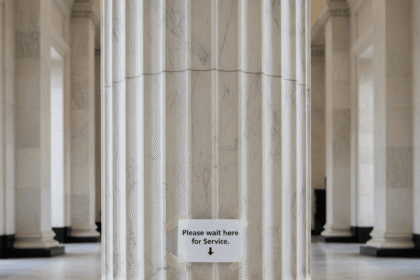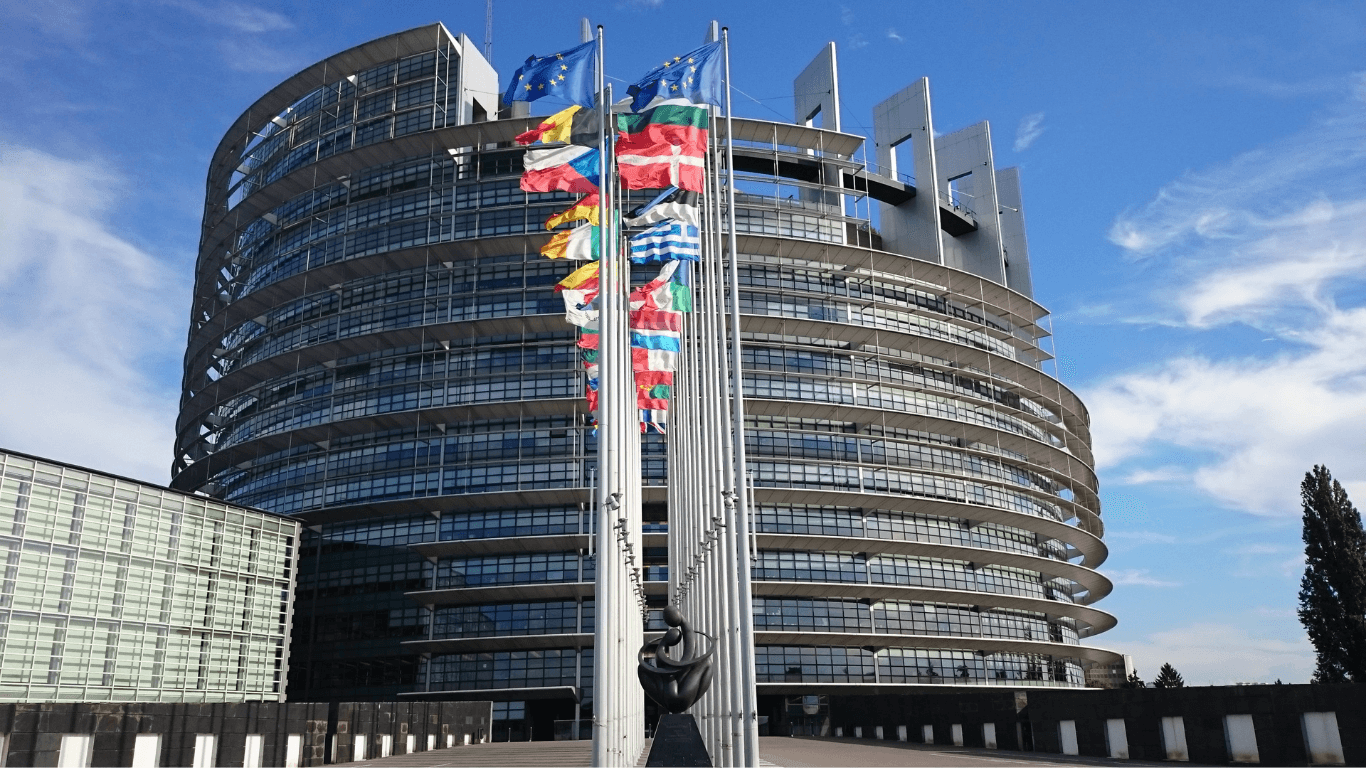The economic rivalry between the United States and China has escalated into one of the most defining geopolitical tensions of the 21st century. What began as a tariff dispute has evolved into a broader struggle for technological dominance, supply chain security, and economic influence. This article examines the origins, impact, and future trajectory of the trade war, shedding light on its consequences for global markets.
Origins of the Trade War
The trade war officially began in 2018. when the Trump administration imposed tariffs on billions of dollars’ worth of Chinese imports, citing unfair trade practices and intellectual property violations. China responded with retaliatory tariffs, triggering a cycle of escalation. The trade war was largely shaped by U.S. concerns over China’s industrial policies, state subsidies, and the perceived imbalance in trade relations.

On this topic, we invited a top expert Irina Tsukerman –US national security lawyer, geopolitical analyst, and Board Member of The Washington Outsider Center for Information Warfare. She gave an exclusive interview for our digital magazine rEUconnecting – REUC. (Please find her official website scarabrising.com. )
Journalist: How do supply chain challenges influence broader U.S.-China diplomatic relations?
Irina Tsukerman: „To understand how supply chain disruptions influence U.S.–China relations, we need to go back to the foundational logic of globalization in the 1990s and early 2000s. For decades, the economic integration of China into global supply chains was seen not just as a matter of market efficiency but as a geopolitical stabilizer. The theory—embraced by Clinton-era trade liberalizers and later by the Bush administration—was simple: integrate China into the World Trade Organization (WTO), embed it into global markets, and interdependence would moderate Beijing’s geopolitical ambitions. Trade would replace tanks.
That illusion began to unravel in earnest during the Trump administration and collapsed almost completely during COVID-19. Suddenly, Americans realized that their medical masks, pharmaceutical precursors, and even ventilators were dependent on the goodwill of a strategic competitor. Today, that competitor increasingly weaponizes its dominant position in rare earth minerals, battery components, and green energy infrastructure. For example, China controls over 70% of the world’s rare earth processing capacity and 85% of the world’s graphite refining—materials critical to semiconductors, EV batteries, and defense technologies.
As a result, supply chains are no longer technocratic concerns relegated to trade departments. They have become a top-tier national security concern. Every port backlog, every shortage of semiconductors, every hiccup in pharmaceutical supplies is now interpreted through the lens of geopolitical vulnerability. The Biden administration has doubled down on efforts to decouple or „de-risk“—a softer word with similar implications—by reshoring manufacturing, incentivizing domestic production of critical goods, and creating redundancy through alliances.
Yet, even as Washington attempts to reduce exposure, the structural interdependence remains. China is still the world’s factory for many low-margin, high-volume goods, and the infrastructure supporting that dominance is decades ahead of potential replacements. In other words, the U.S. is still trapped in a web spun over thirty years—a web designed by American corporations and now maintained by Chinese state capitalism. Every attempt at strategic disengagement becomes a negotiation between resilience and economic pain.
This tension now shapes diplomatic encounters. Economic talks are less about trade balances and more about technological sovereignty. Semiconductors, AI chips, and quantum technologies dominate high-level summits. Meanwhile, China’s aggressive industrial policy—from subsidies to forced technology transfers—has fueled bipartisan consensus in Washington that the old model of economic engagement has failed. The result is a diplomatic relationship that is increasingly confrontational, strategic, and deeply informed by logistical dependencies.“

Journalist: What are the ethical and environmental implications of reshoring critical industries to the U.S.?
Irina Tsukerman: „The idea of reshoring critical industries to the U.S. is politically seductive. It promises jobs, strategic independence, and national pride. But this romantic vision of economic self-reliance comes with a much murkier ethical and environmental footprint.
Start with labor. Yes, reshoring allows the U.S. to move production out of environments riddled with forced labor (such as China’s Xinjiang province) and into jurisdictions with stronger regulatory frameworks. But domestic manufacturing isn’t automatically ethical. U.S. labor protections, while stronger on paper than in many developing countries, remain inconsistent. Non-union labor, temporary contracts, and poor OSHA enforcement in many regions undercut the moral superiority often claimed in reshoring rhetoric.
Then there are the environmental implications. Much of the global supply chain offshoring over the past 30 years was not just about cheap labor but about exporting pollution. China, in particular, absorbed the dirtiest parts of the global industrial chain—from rare earth processing to chemical manufacturing—precisely because Western nations no longer tolerated their environmental costs. Bringing these industries back home means confronting the same trade-offs: emissions, waste, and community health.
For instance, rare earth refining involves toxic chemicals and radioactive waste. A new processing facility in Texas may reduce dependence on China, but if it contaminates groundwater in West Texas, have we really „won“ anything? Similarly, battery production, solar panel manufacturing, and pharmaceutical chemical synthesis require enormous water, energy, and regulatory oversight.
This reality creates a paradox: to be morally and environmentally sustainable, reshoring must be expensive. It requires investing in green industrial technology, enforcing strict labor protections, and ensuring local communities aren’t turned into sacrifice zones. Otherwise, we risk replicating the very injustices we sought to escape—just under a different flag.
Yet despite these challenges, the push for reshoring will likely continue, driven not by idealism but necessity. The key will be whether the U.S. can walk the tightrope between ethical production and economic competitiveness without slipping into greenwashing or protectionist inefficiency.“

Journalist: How can the U.S. strengthen its alliances with other countries to address global supply chain vulnerabilities?
Irina Tsukerman: „The U.S. can no longer afford to treat allies as transactional partners in a trade network. In a world of increasingly fragmented globalization, alliances must evolve into integrated systems of shared resilience. This isn’t just about avoiding China’s supply chains; it’s about rebuilding a global framework where trust, predictability, and redundancy form the backbone of economic security.
Historically, the U.S. has had mixed results. During the Cold War, alliances were built around ideological blocs and military cooperation. Economic integration came as a secondary benefit. But in today’s multipolar world, the lines between defense, technology, and trade have blurred. Supply chains now underpin everything from missile guidance systems to vaccine distribution.
Washington’s challenge is to shift from unilateralism to genuine co-production. The CHIPS Act, for example, includes bilateral agreements with Japan and South Korea for semiconductor production. Australia and Canada are being courted for critical mineral supply agreements. Even India, long nonaligned, is gradually warming to U.S. overtures under the Indo-Pacific Economic Framework (IPEF).
But incentives alone won’t suffice. Many allies still remember U.S. export restrictions, sudden tariffs, and industrial espionage scandals. The credibility deficit cannot be ignored. Long-term agreements must include legally binding frameworks, joint oversight mechanisms, and equitable market access.
At the same time, developing nations must be brought into the fold. The Global South is increasingly courted by China, which offers infrastructure with few political strings. The U.S. must respond with Build Back Better World (B3W) projects that aren’t just press releases but shovel-ready programs. Africa, Southeast Asia, and Latin America are not passive bystanders; they are emerging hubs that can either tilt toward Beijing or become co-pilots in a new supply chain architecture.
In short, Washington must build alliances not for optics but for operational depth. And that requires humility, shared governance, and the discipline to match strategic rhetoric with material commitment.“

Journalist: What industries should policymakers prioritize when formulating strategies to mitigate supply chain risks?
Irina Tsukerman: „Not every industry is vital to national resilience, but some are absolutely irreplaceable. Identifying these sectors isn’t just a matter of economics—it’s about strategic foresight. The last three years have proven that the most catastrophic supply chain failures often stem from sectors that were previously ignored because they were low-margin or deemed too boring.
Semiconductors, for instance, are the nervous system of modern civilization. They power everything from fighter jets to smartphones to electric vehicles. The U.S. invented the chip but allowed manufacturing dominance to shift to Taiwan and South Korea. Today, TSMC’s foundries represent both a marvel of efficiency and a terrifying single point of failure—especially given China’s ambitions over Taiwan.
Then there are critical minerals. China dominates the refining of rare earths, lithium, cobalt, and graphite—materials indispensable to defense systems, renewable energy technologies, and the tech economy. Mining alone isn’t the issue; processing is. Even minerals extracted in Australia or the U.S. are often sent to China for refinement.
Pharmaceuticals are another weak link. An estimated 80% of the active pharmaceutical ingredients (APIs) used in U.S. medicine come from overseas—primarily China and India. During the COVID-19 crisis, disruptions in basic antibiotics and protective equipment became national security emergencies.
Finally, energy infrastructure—especially components for the electric grid and green energy systems—must be considered a critical sector. Solar panels, wind turbines, and battery storage systems are deeply dependent on Chinese components. A future built on energy transition cannot be shackled to geopolitical uncertainty.
Policymakers should also include secondary industries such as industrial chemicals, fertilizers, and even packaging materials. A resilient supply chain isn’t just about keeping the high-tech components flowing—it’s about ensuring that the banal but essential materials don’t grind everything to a halt.“

Journalist: Do you see the current focus on supply chain resilience leading to significant policy shifts in the future?
Irina Tsukerman: „The supply chain crisis has awakened something long dormant in American governance: the idea that the federal government should have a coherent industrial policy. For decades, both parties outsourced economic strategy to markets and assumed supply chain efficiency would naturally align with national interests. That era is over.
Today, supply chain resilience has become the lodestar of bipartisan policy-making. The CHIPS Act, the Inflation Reduction Act, and the infrastructure bill all contain provisions that reassert the government’s role in shaping how, where, and by whom key products are made. This isn’t protectionism in its 20th-century form—it’s strategic insulation.
What’s changing is the perception of national power itself. It’s no longer measured solely by military budgets or GDP but by economic endurance: can a country produce its own medicine, feed its own people, and power its own economy without relying on potential adversaries? Resilience is becoming synonymous with sovereignty.
Future policy shifts will likely include:
- Tax incentives for domestic production and onshoring
– Strategic stockpiling of critical materials
– Tightened export controls on sensitive technologies
But these shifts won’t be clean or linear. Industrial policy is messy, subject to political pressure, and prone to capture by special interests. There will be false starts, wasteful subsidies, and bureaucratic infighting. Yet the direction is clear: resilience is the new organizing principle of American economic strategy.
The private sector is moving in parallel. From Intel to Ford to Moderna, companies are redesigning supply chains with geopolitical risk in mind. Insurance models are changing. Investor expectations are shifting. The conversation has evolved from quarterly margins to long-term viability.
In the end, supply chain resilience isn’t just a reaction to past failures. It is a blueprint for future power. If executed thoughtfully, it could become the foundation for a new era of American competitiveness. If done poorly, it will be another missed opportunity in a century that will not be forgiving of strategic naivety.“
































